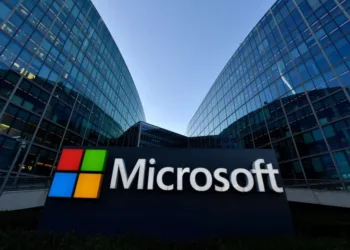NVIDIA’s ambitious plans to establish its “Constellation” headquarters in Taiwan have hit unexpected roadblocks in October 2025. The chipmaker announced intentions in May to build a major facility in Taipei’s Beitou-Shilin Science Park, but negotiations have stalled due to land rights disputes involving Shin Kong Life Insurance and disagreements with local government authorities.
Table of Contents

The Contract Standoff
According to reports from Taiwan Economic Daily, the proposed T17 and T18 land parcels are entangled in disputes with Shin Kong Life Insurance, a division of Taiwan’s Shin Kong Bank. Negotiations reportedly broke down over disagreements regarding land development rights between Shin Kong, NVIDIA, and the Taipei city government. These contract issues have raised concerns that NVIDIA might seek alternative locations for its Asia operations hub.
Acer founder Stan Shih weighed in on the controversy, suggesting that Taiwan’s stringent anti-corruption regulations may be creating excessive bureaucratic hurdles that complicate major infrastructure deals. The situation highlights the challenges foreign tech giants face when navigating Taiwan’s regulatory landscape, even as the island nation remains critical to global semiconductor supply chains.
| Project Detail | Information |
|---|---|
| Facility Name | NVIDIA Constellation |
| Proposed Location | Beitou-Shilin Science Park, Taipei |
| Announcement Date | May 2025 (Computex Taipei) |
| Land Parcels | T17 and T18 zones |
| Current Status | Stalled due to land rights disputes |
| Key Issue | Shin Kong Life Insurance ownership concerns |
Why Taiwan Matters to NVIDIA
CEO Jensen Huang announced the Taiwan headquarters during his Computex Taipei 2025 keynote in May, revealing the expansion was necessary because existing offices couldn’t accommodate NVIDIA’s rapidly growing engineering workforce. Huang humorously noted the project was essentially to “get more chairs,” as current facilities had exceeded capacity with the company’s expanding Taiwan operations.
Taiwan hosts critical partners in NVIDIA’s supply chain, including TSMC, which manufactures the company’s cutting-edge AI chips. The island’s deep semiconductor expertise and talent pool make it strategically vital as NVIDIA continues dominating the AI accelerator market that propelled its market capitalization past $4 trillion in 2025.
Learn more about NVIDIA’s global operations and explore additional tech industry news at TechnoSports.

Political and Bureaucratic Challenges
The stalled negotiations reflect broader tensions between facilitating foreign investment and maintaining regulatory oversight. While Taipei city leaders initially expressed support during site selection, subsequent disagreements over development rights and ownership structures have complicated progress.
NVIDIA reportedly sought up to three hectares of land in Taipei—a substantial footprint challenging to secure in the densely developed capital. The delays underscore difficulties even trillion-dollar tech companies face when navigating local real estate markets and government approval processes.
What’s Next for NVIDIA?
Industry observers are watching whether NVIDIA will persevere with the Beitou-Shilin location or pivot to alternative sites. The company’s commitment to expanding Taiwan operations remains clear given the island’s semiconductor ecosystem importance, but the timeline has become uncertain.

The situation also raises questions about Taiwan’s competitiveness for attracting major tech investments despite its semiconductor manufacturing prowess. As global tech giants increasingly establish Asian headquarters, streamlined approval processes could prove crucial for Taiwan maintaining its strategic position in the industry.
FAQs
Why did NVIDIA’s Taiwan headquarters project stall?
Land rights disputes with Shin Kong Life Insurance and disagreements with Taipei government over development rights caused negotiations to break down.
When did NVIDIA announce plans for Taiwan headquarters?
CEO Jensen Huang announced the “Constellation” headquarters project during his May 2025 Computex Taipei keynote speech.








